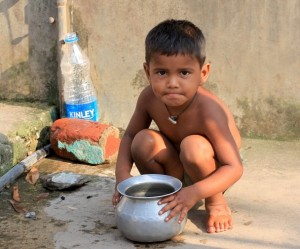 The 2016 Rio Olympics has once again highlighted that there are many communities that do not have access to clean drinking water and hygienic sanitation, even though both have been declared Human Rights and the United Nations Sustainable Development Goal (SDG) 6 is Ensure access to water and sanitation for all.
The 2016 Rio Olympics has once again highlighted that there are many communities that do not have access to clean drinking water and hygienic sanitation, even though both have been declared Human Rights and the United Nations Sustainable Development Goal (SDG) 6 is Ensure access to water and sanitation for all.
Despite the fact that Brazil is an upper-middle income country, around 3.5 million Brazilians, have no access to clean water, and 35 million live without decent sanitation. In Rio alone, 30% of the population is not connected to a formal sewerage system.
Unfortunately this is so across the globe, where the figures are 10% living without access to clean water and around 30% without decent sanitation. This is disgraceful in the 21st century and it is high time that governments around the world address the UN global goals for sustainable development that were agreed upon last year.
While the number of individuals without access to clean drinking water has dropped drastically over the past few decades, it is nowhere near being good enough and the poor are still being side-lined. According to the World Health Organisation (WHO) and UNICEF, approximately 89% of the global population had access to improved water supplies by the end of 2012. Despite this, around 748 million people, around 50% of which live in Sub-Saharan Africa and most of the rest in Asia, still have insufficient access to improved water sources.
Failure to provide equal access to adequate water sources and sanitation means that we are failing the poorest and the most vulnerable families, including children. Most of these are rural people who could benefit greatly from clean water and hygienic sanitation as this could limit the spread of diseases such as hepatitis A, cholera, typhoid, dysentery, and diarrhoea.
According to Maria Neira, the WHO’s public health chief, “Progress on rural sanitation – where it has occurred – has primarily benefitted richer people, increasing inequalities.
There are also major disparities in access within towns and cities, where the poor are still far less likely to get the services they need, according to said Sanjay Wijesekera, head of water, sanitation and hygiene at UNICEF.
Get plumbed water coolers and bottled water coolers from Living-Water.





